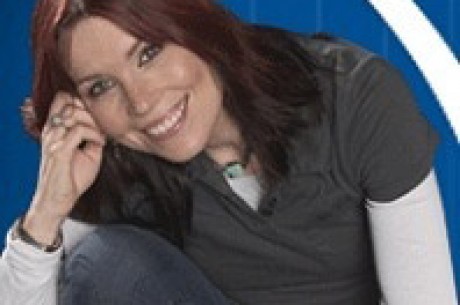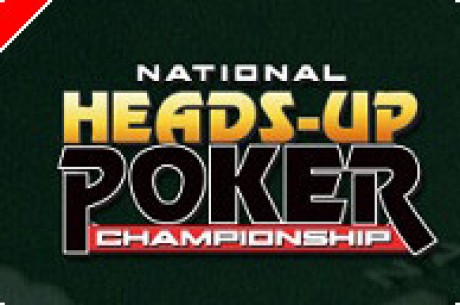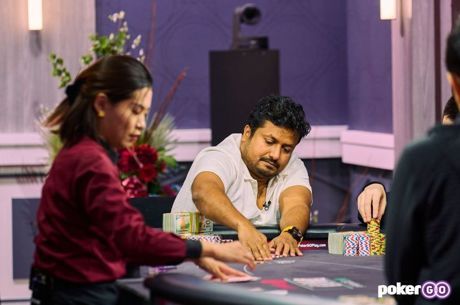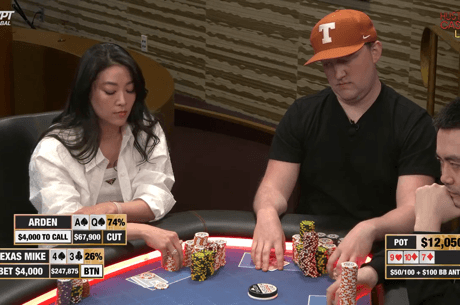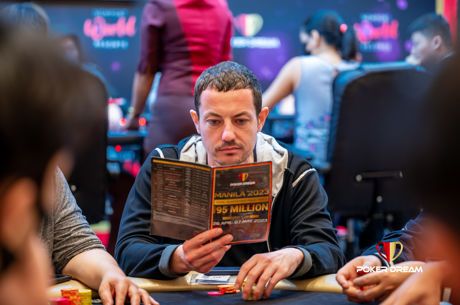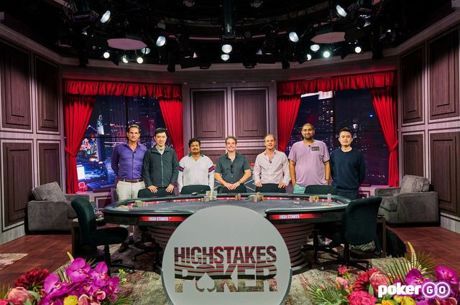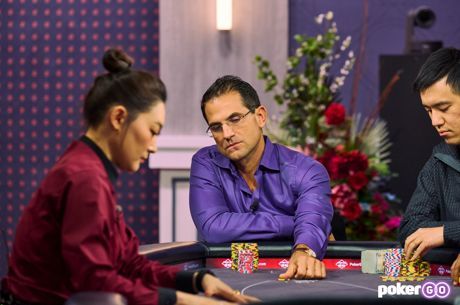Poker on TV: Interview with the CEO of The Poker Channel
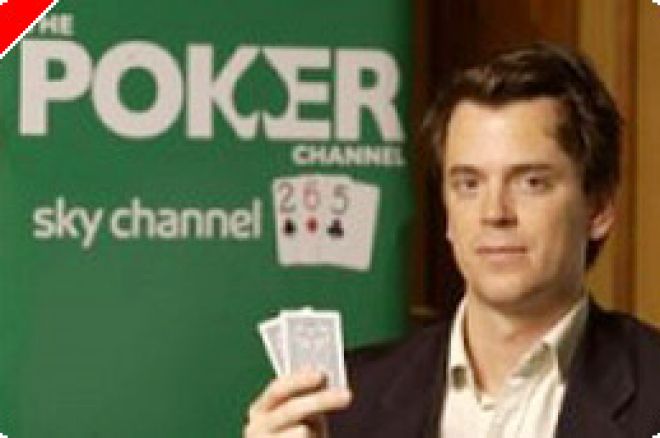
Our correspondent recently had the pleasure of visiting the London headquarters of The Poker Channel to talk with Crispin Nieboer, the Chief Executive Officer, about this exciting TV development for poker enthusiasts.
The Poker Channel was launched in the United Kingdom on 23rd March 2005 and is the world's first TV channel dedicated to poker. The Poker Channel is available to all Sky TV subscribers in the UK, as a free to air channel, and is located under the Entertainment section Channel Number 265.
PN: Well, Crispin, first of all I would like to thank you for taking the time out to have a chat about The Poker Channel.
CN: Not at all. It's my pleasure.
PN: I guess it is best to start at the beginning. What events led to the birth of the Poker Channel and your becoming the Chief Executive?
CN: The idea of The Poker Channel actually came to me when I was in the bath! In my previous line of work, my job entailed coming up with ideas for TV channels when I was at Sky TV and, before that, Granada TV.
What interested me about The Poker Channel in particular was I couldn't help but look at the United States and see the incredible success that people like Party Poker and Pokerstars had achieved from sponsoring poker tournaments - like the World Poker Tour televised on the Travel Channel - and see the complete proliferation of poker programming, and sponsored programming, onto networks like ESPN.
I knew it would only be a matter of time until programmes like Poker Million, which already rate incredibly well, and programmes like Late Night Poker on Channel 4 would follow the same process and become much more mass market. So, for me, that's how the idea of The Poker Channel was born.
PN: I imagine the lead up to the official TV launch on 23rd March was both a tense and exciting time for everyone involved.
CN: Yes, it definitely was both tense and exciting! Tense because, when you launch a channel on the Sky platform in the UK, they tend to give you your launch date only a couple of months before you are required to launch and, if you miss your launch date, you don't get one for another 6 or 9 months depending on the time of year.
We were given our launch date in late December (2004) and the launch date was March 7th. Given that it was Christmas and everything else in between, we had a lot to do but we got there and we are very proud that we did it. It was very exciting and it's great to be doing something that is a world first - the world's first dedicated poker channel. We've put together a great team and we've got some great programmes.
PN: Soon after the launch of The Poker Channel, viewers were told about the British Poker Open (BPO) and how this would be the very first time anywhere in the world where a major tournament would be screened predominantly live during its early stages. I assume the idea was to ensure that The Poker Channel would quickly establish a wide audience amongst poker fans?
CN: Yes, the thinking behind the British Poker Open was to create a format that really took poker to the next level in terms of how it is televised. People had previously done live finals, for example, the Poker Million did a live final and did that very well. Shooting more than just a final, shooting the heats live as well, was something that I thought a lot of people felt should be done. It was just a question of how to achieve it.
Shooting poker live is, as I am sure you know, very difficult. You have to get round the table quickly to pass a huge amount of information to the viewer in real time and there can be a lot of dull hands. So to make that as exciting and spontaneous but also informative and to get all the data across in a way that the viewers want was a challenge we thought was there to be taken on.
That was the thinking behind the BPO. It was to prove that live poker could be done effectively and well. Also the other thing we wanted to do with the BPO was to have some of the biggest international and US players come to the UK. I think a lot of British tournaments to date haven't really done that effectively. So, we were very pleased to have the likes of Howard Lederer, Gus Hansen, Jesus Ferguson and Greg Raymer come over and play in it and I think that proved that, after a point, we started to be taken very seriously.
PN: The heats of the BPO were each sponsored by major on-line poker companies such as PartyPoker, Pokerstars, Full Tilt and Betfair who in return sent a mixture of their own on-line qualifiers and sponsored professional players to the tournament. What feedback have you since had from these sponsors and are they likely to repeat the process in future?
CN: We've had positive feedback although it's early days. We will repeat each programme a certain number of times. Some channels repeat as many as ten times but we won't do as many as that. The short answer is, the poker sites have been very pleased with what's happened but they haven't been given a chance yet to be able to see what the performance of the shows has been like. Obviously, for them, they want to get as many eyeballs as possible across their brands when they sponsor something.
Also, we haven't had the chance yet to go out and close deals internationally and we are also talking to terrestrial TV channels. In six months' time, they will be able really to analyse the performance of that sponsorship and how it has done for them. What I would say is that it is very early days for our channel. Things are looking good - we got 0.8 million viewers in our first real month of broadcast and some of the shows, the Party Poker shows for instance, have attracted 500,000 unique viewers cumulatively over the broadcast and the Pokerstars shows, on one airing, have already attracted over 250,000. So they are attracting a hell of a lot of eyeballs which is, in the end, what they want.
PN: A number of top US-based professionals like Lederer, Ferguson, Block, Raymer and Hansen all competed in the BPO. Do you know if they enjoyed the experience of playing in a London TV studio?
CN: Yes, they did. All of them said how much they enjoyed it. In particular, the difference for them was playing live. I think also having a trip to the UK was great. A lot of these guys represent the poker sites and, in the case of Full Tilt, they have a share in the business or run and own it. I think a lot of these guys realise the UK is the new growth area and that the quick and easy growth in the US has already occurred.
We enjoyed having them over and they enjoyed staying. We had Greg Raymer come down (to the studio) most nights and Gus came down two or three nights just to soak up the atmosphere and be in the bar. When we could, we got as many people up into the commentary suite as possible so it went well.
PN: What else does The Poker Channel have lined up in the near future to have us all (in Britain at least) jotting down diary entries?
CN: From 30th May, we have started to broadcast the World Cup of Poker and this is being broadcast every Monday and Wednesday at 10pm. The World Cup of Poker format is sponsored by Pokerstars.com. They've basically created a format which they ran last year, in Barcelona I think, and now they are doing it again this year with us in London. They've taken forty countries and whittled it down to four. We then shot the competition of the four countries playing against each other. There was Norway, Costa Rica, Scotland and Austria.
The reason I was interested in this format is because no-one has really done heads-up in a way that we thought really provided viewers with something that was different, informative, useful and exciting. There has been heads-up broadcast before but I don't think it has been done necessarily that well.
Hopefully what the viewers will see is a way that heads-up poker can be incredibly exciting and it can happen incredibly quickly. Then there are the reads that each player has on each other. It's a very different form of poker. There are nine shows and each show has two matches in it. I think the shows look amazing.
We've then got the World Series of Poker (WSOP) coverage in late June and July. We have a crew over there to follow it and will have weekly updates on the channel. Poker fans in the UK and elsewhere will want to know what is happening as it is happening rather than wait for the edited ESPN version to come out several months later. We are all about giving our viewers what they want when they want it.
We are providing live feeds from partner websites on the channel so viewers can, if they want, go onto a website like Pokerheaven.com, and have their play broadcast live on The Poker Channel on a slightly delayed basis (to prevent any cheating) and we will apply commentary over that so they can have their game analysed. Viewers can text in and make comments and we may also do a radio phone-in type show where the commentator is analysing and watching your game and is taking calls.
So those are three things we have coming up on The Poker Channel shortly. We also have a poker school format, a master class format, coming up which will be more for intermediate and advanced players than just for beginners. There is already a lot of beginners' material out there.
PN: In Britain, before The Poker Channel was launched, there was a plethora of satellite/cable channels broadcasting re-runs of US-based poker shows such as the WPT and, dare I mention, Celebrity Poker. In true US-style, these have an in-your-face "entertainment" bias. Do you regard The Poker Channel as providing a more education-based service for both the new and seasoned poker player or is "show-business" also on the agenda?
CN: That's a good question! Our core aim in our first three to six months is to provide something for the more hardcore poker enthusiast but, going forward, we want to ensure that we can offer something also for a more casual interest in poker and, with regards to that, a more entertainment-focussed rather than just professional tournament player.
So we are looking at, for August and September, shooting one or two entertainment-oriented shows. That may be in one of two forms. Either a celebrity format which we will shoot in August/September or December - we'll certainly do one this year - or a kind of "Poker Idol" format, but not using the "Idol" trademark; rather that is just to give you an idea of the format. That may be called something like World Poker Champion 2005.
That format is again more entertainment-oriented where viewers have the chance to affect the show by voting for players they like or dislike, and where you take a "Joe Public" internet playing amateur and give them a chance to become a fully paid-up sponsored professional, to be sent off to all the tournaments around the world and the live the dream.
That type of tournament along with the celebrity tournament I think is going to be a more wide-reaching format. We wanted to make sure that, if we are going to call ourselves The Poker Channel, we are going to go out to be the core home of poker when it comes to televised poker in the UK. We wanted to be absolutely sure, through tournaments such as the BPO, we were in the bullseye of providing a professional service to hard-core poker enthusiasts and not something that's "Mickey Mouse". But, yes, we will do more entertainment stuff as we go forward.
PN: Moving away from The Poker Channel specifically, what is your vision of the future of TV programming of poker and do you see this embracing live on-line gaming attracting players away from their computers?
CN: I think going forward there will undoubtedly be some more copycat channels that come out replicating what The Poker Channel has started. I don't mind that; imitation is the best form of flattery sometimes and I think it is a big market. So, I think we'll see three or four channels coming out like that in the next 18 months. I'm not sure whether we'll see many that are independent. For example, Pokerzone's launch is associated with a major poker site.
Outside of that, what I see happening is people have talked a lot about interactive TV and the scope for betting on there; the Gaming Act de-regulation has gone through now and at the end of 2006 we'll be able to have casino-based gaming on interactive TV. That's obviously a key opportunity for us and something we've been focussed on from the start, but we shouldn't over-estimate how big interactive TV is compared to the internet. It will always be a tiny percentage of it.
What is useful from a channel perspective is it gives the viewers something else to do while he is watching the channel. It creates greater periods of viewing on the channel and gets the viewer to stay with us longer. From that aspect it is interesting but it is never going to be a huge money-spinner and that wouldn't be the reason we'd do it. It is more of a kind of marketing service for us to give our viewers something else to do on the channel.
In terms of switching, I think the most exciting thing from directly linking the web to the TV is in relation to web-feed programming that we are launching this month on our channel. We are providing, on a slightly delayed basis, coverage of big tournament games happening right now on certain sites so that players from these sites can get themselves known in the market more and we can analyse their play and look at how they are operating. That I think will be, in the near term, the most interesting link between the two platforms.
PN: Turning to you personally, do you find time in your busy schedule to play poker yourself?
CN: We have a game every Friday as a team, when we have time. James Hopkins, our producer, who organises the games, and Chiara Cipriani, our Director of Television, are both very good whereas I am a terrible poker player! I always get beaten by them because I don't have the patience. It's a game that I really enjoy and I guess about once a month I play on my own on-line but I wouldn't like to pretend I am a big winner. James is your man, James is good!
PN: Finally, is there anything else we haven't covered here today that you would like the readers of Poker News to know about?
CN: All I would say is that we are re-launching our channel website (pokerchannel.co.uk). So, for those people who cannot view the Poker Channel yet, you will, by the time this article comes out, be able to view short videos of key programmes, and a whole host of additional content and exclusive information. We've got a huge editorial section on the WSOP, and a team of leading reporters with articles from leading journalist Rolf Slotboom, the voice of poker Jesse May, Dave 'El Blondie' Colclough, and Gary 'The Choirboy' Jones. There's also a new web forum, an SMS poker tips service, results of the key tournaments, and transcripts of all our interviews. So, if you can't watch "Up Close with Greg Raymer" for instance we've got the transcript of the interview on the website. The web-site also allows you to watch edited video footage of our major tournaments, including the moment Greg Raymer took out 2 players at once in the British Poker Open, with a Queen-Eight, versus an Ace-King and pair of Queens. I'll let you see for yourself what happens.
PN: Crispin, it's been a great pleasure talking to you, and thanks very much for your time.
CN: Thank you.
Ed Note: Noble Poker have our top rated bonuses.


